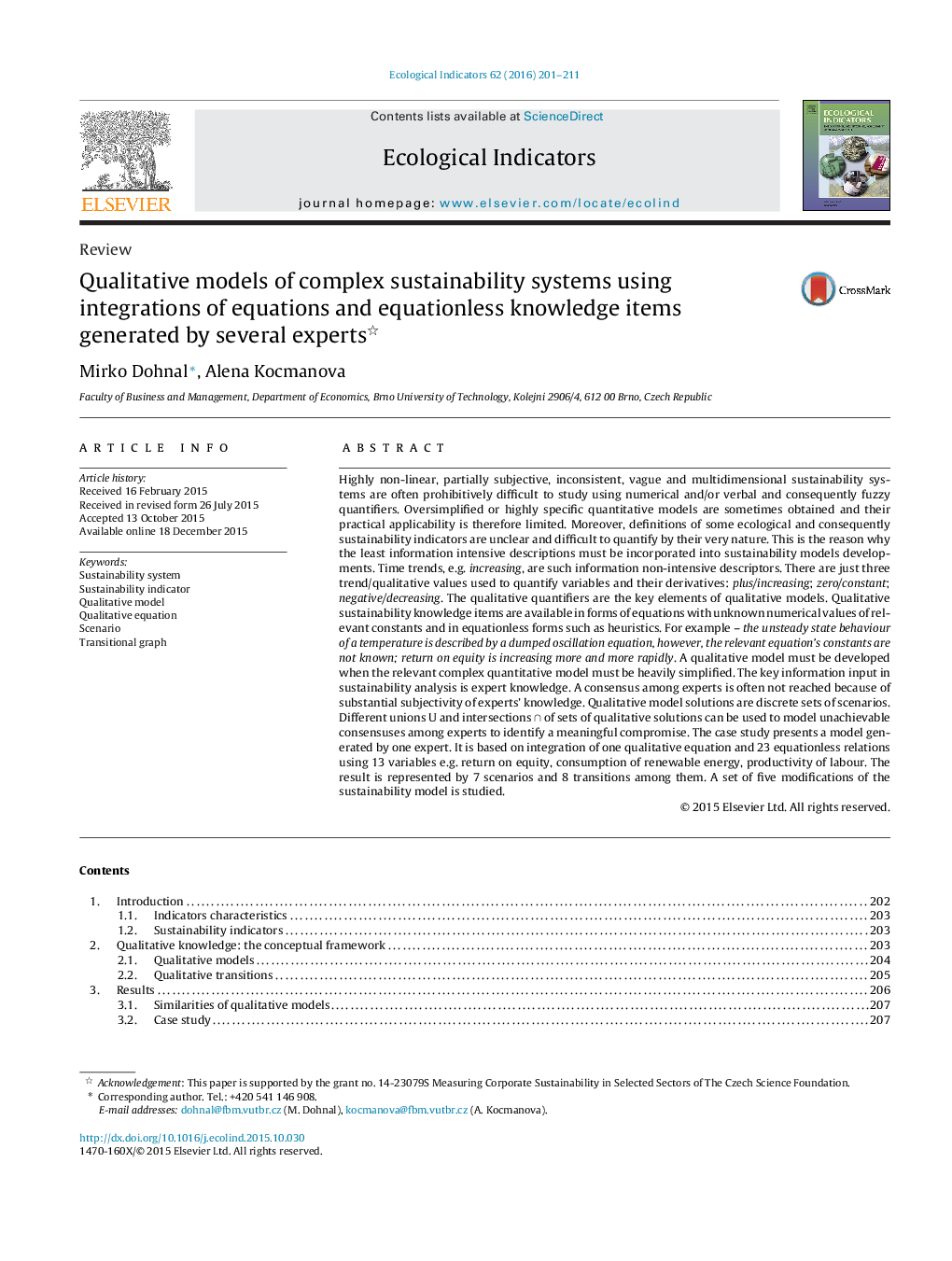| کد مقاله | کد نشریه | سال انتشار | مقاله انگلیسی | نسخه تمام متن |
|---|---|---|---|---|
| 6293948 | 1617140 | 2016 | 11 صفحه PDF | دانلود رایگان |
عنوان انگلیسی مقاله ISI
Qualitative models of complex sustainability systems using integrations of equations and equationless knowledge items generated by several experts
ترجمه فارسی عنوان
مدل های کیفی سیستم های پایداری پیچیده با استفاده از یکپارچگی معادلات و مقادیر معادلۀ معرفتی تولید شده توسط چندین کارشناس
دانلود مقاله + سفارش ترجمه
دانلود مقاله ISI انگلیسی
رایگان برای ایرانیان
کلمات کلیدی
سیستم پایداری، شاخص توسعه پایدار، مدل کیفی، معادله کیفی، سناریو، نمودار گذار
موضوعات مرتبط
علوم زیستی و بیوفناوری
علوم کشاورزی و بیولوژیک
بوم شناسی، تکامل، رفتار و سامانه شناسی
چکیده انگلیسی
Highly non-linear, partially subjective, inconsistent, vague and multidimensional sustainability systems are often prohibitively difficult to study using numerical and/or verbal and consequently fuzzy quantifiers. Oversimplified or highly specific quantitative models are sometimes obtained and their practical applicability is therefore limited. Moreover, definitions of some ecological and consequently sustainability indicators are unclear and difficult to quantify by their very nature. This is the reason why the least information intensive descriptions must be incorporated into sustainability models developments. Time trends, e.g. increasing, are such information non-intensive descriptors. There are just three trend/qualitative values used to quantify variables and their derivatives: plus/increasing; zero/constant; negative/decreasing. The qualitative quantifiers are the key elements of qualitative models. Qualitative sustainability knowledge items are available in forms of equations with unknown numerical values of relevant constants and in equationless forms such as heuristics. For example - the unsteady state behaviour of a temperature is described by a dumped oscillation equation, however, the relevant equation's constants are not known; return on equity is increasing more and more rapidly. A qualitative model must be developed when the relevant complex quantitative model must be heavily simplified. The key information input in sustainability analysis is expert knowledge. A consensus among experts is often not reached because of substantial subjectivity of experts' knowledge. Qualitative model solutions are discrete sets of scenarios. Different unions U and intersections â© of sets of qualitative solutions can be used to model unachievable consensuses among experts to identify a meaningful compromise. The case study presents a model generated by one expert. It is based on integration of one qualitative equation and 23 equationless relations using 13 variables e.g. return on equity, consumption of renewable energy, productivity of labour. The result is represented by 7 scenarios and 8 transitions among them. A set of five modifications of the sustainability model is studied.
ناشر
Database: Elsevier - ScienceDirect (ساینس دایرکت)
Journal: Ecological Indicators - Volume 62, March 2016, Pages 201-211
Journal: Ecological Indicators - Volume 62, March 2016, Pages 201-211
نویسندگان
Mirko Dohnal, Alena Kocmanova,
